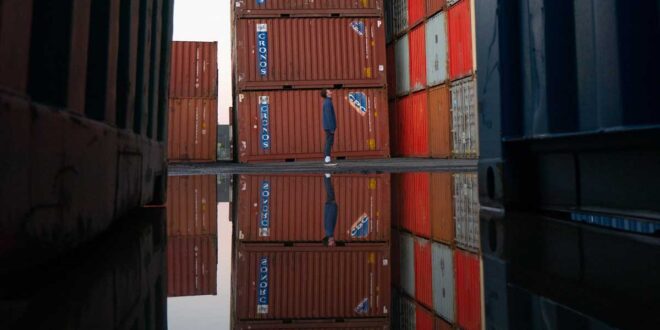Pushkar Pushp
It has been more than a week since Russia has launched a war against Ukraine. The United state and its allies have already put sanctions on Russia. These sanctions aim to weaken its financial assets and the military. However, as we monitor the Russian invasion of Ukraine it will be prudent to understand the consequences of this war on one of the major projects launched by China that is Belt and Road Initiative (BRI). In BRI one of the major project is ‘The New Eurasia Land Bridge Economic Corridor’. This project connects the rail transportation between China and Europe via Kazakhstan, Russia and Belarus. The present situation will have a direct consequence on this BRI network. China shares a good relationship with both Russia and Ukraine.
On the one side, China is Russia’s closest partner and on the other side, China has been the largest trading partner of Ukraine. China is the major destination of Ukraine’s export, around 15.3 per cent of Ukraine’s export goes to China. In 2013, when BRI was launched China considered Ukraine as one of the strategic locations to get an opportunity to expand the project in the EU. In 2017, Ukraine joined BRI intending to modernize its rail and road infrastructure. As of 2021, both these countries have signed $3 billion construction contracts in the transportation and energy sector. Chinese President Xi Jinping has outlined the importance of Ukraine for China’s BRI, He discussed the importance of the China-Ukraine strategic partnership. Ukraine’s trade agreement with the EU makes it more important as a transit hub and a gateway to the EU. Since then, the trade relations between these two countries have increased significantly. Chinese companies have considered Ukraine as a new investment centre and have invested heavily in many sectors for example China’s state-owned enterprise COFCO, has invested $50 million in Mariupol, Donetsk. The New Eurasia Land Bridge Economic Corridor is a gateway for China in the European market.
Firstly, at present, 78 lines are operational that connects China to Europe covering 180 cities and 23 countries of Europe. In 2021, the value of goods transported by these freight trains is $74.9 billion. The report estimates that in 2021 there was ‘1 trip every 30 minutes and 50 thousand trips overall are already completed. These freight trains have developed new hubs in Poland as well as in Russia. But now due to imposed sanctions on Russia, companies may choose not to ship goods via Russia. China is aware that although Russia and China share a good relationship, due to the ongoing crisis the export to Europe through China may be disturbed and it might result in lower economic growth. Chinese exports $75 billion by these trains to Europe and considering the sanctions that have been imposed it will have direct consequences on China’s BRI network.
Secondly, China-Europe freight trains have provided the stability in the supply chain which was disturbed due to pandemic and the current situation in Ukraine has severely disturbed the global supply chain. China’s maritime and air route is already disturbed and this BRI corridor was a stable option for China to supply the goods in the EU market. Considering the value of goods transported to these markets China at present would doesn’t want to lose the market of EU.
Thirdly, Both China and Ukraine agreed to develop infrastructural cooperation as they signed an intergovernmental agreement in July 2021. Apart from this, Chinese companies are also expanding their networks in other sectors such as solar, wind and nuclear power. Ukraine’s borrowings from China for financing the infrastructure projects is determining the economic dependence of Ukraine on China. Ukraine has also been a major supplier of military equipment to China which includes aircraft and diesel engines. China becomes the largest buyer of Ukrainian arms. Moreover, Ukraine is considered as China’s alternate military partner. The Russia-Ukraine crisis can weaken the relationship that Ukraine has been offering to China.
Today China’s dilemma is that it cannot support directly the aggression by Russia nor it can oppose it and it also doesn’t want to lose access to the European market. Although, China has criticised the west for being responsible for this crisis as the west tried to expand North Atlantic Treaty Organisation (NATO) into those areas which were earlier under Russian control.
Being positioned as neutral, China advocates that the issue should be resolved through negotiation and dialogue. The UN general assembly has already urged Russia to stop its aggression by a vote of 141 to 5. Only Belarus, Eritrea, North Korea, Russia, Syria has supported in the favour of Russia. However, China who is also one of the permanent members of the UN security council and has veto power abstained from voting. A report of Bloomberg has mentioned that China has refrained from using the term “Invasion”. Considering the above backdrop, It will be interesting to see how China balances between these two sides. On the one side, it is Russia and on the other, it is the entire west and its market.
 Geostrategic Media Political Commentary, Analysis, Security, Defense
Geostrategic Media Political Commentary, Analysis, Security, Defense





